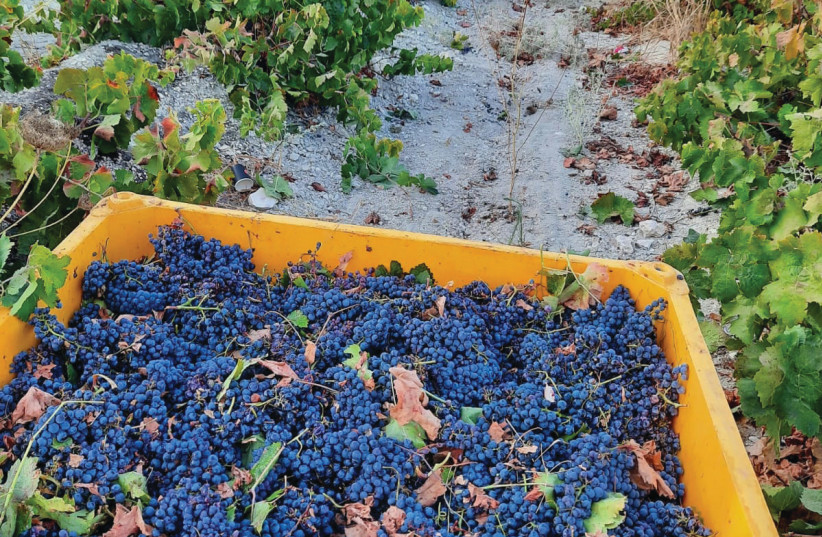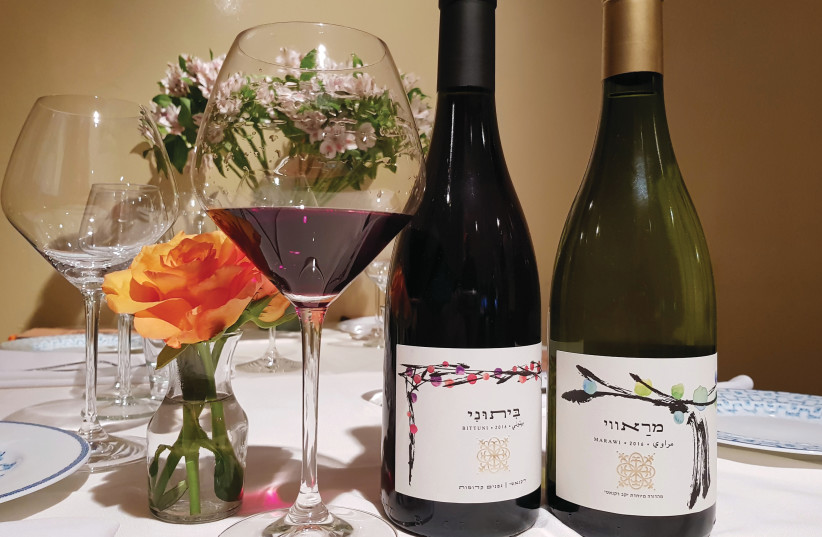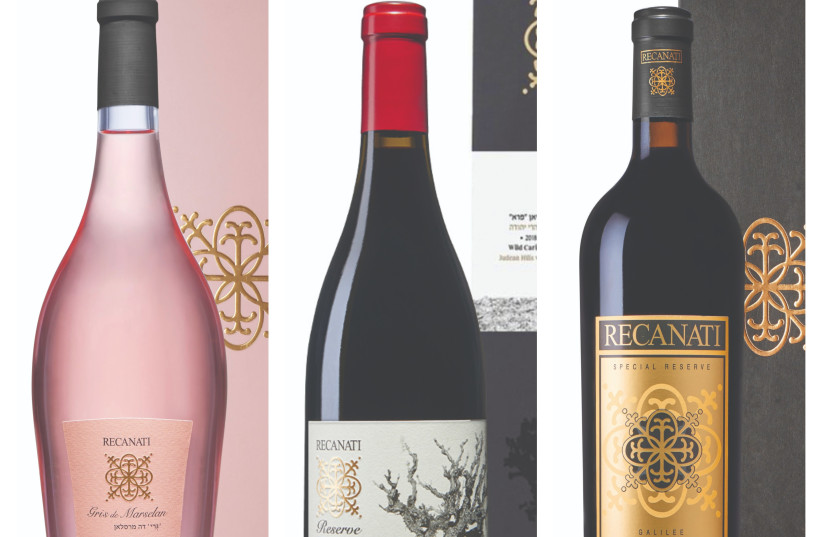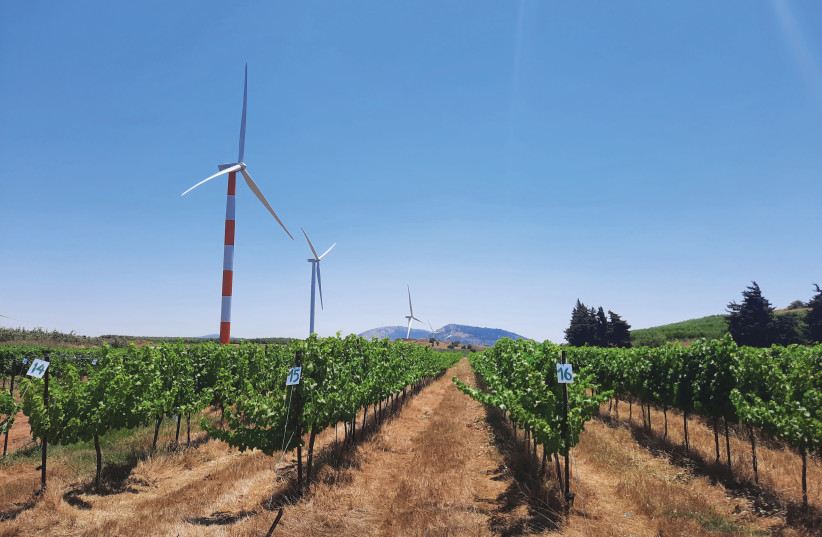The turn of the millennium was a pivotal time for Israeli wine. In that notable year of 2000, a number of new wineries were founded, but these were wineries with a difference to what had come before. They were each founded with no little investment and with an immediate eye to quality and attention to detail. They were geared to making a winery of a certain quantity, but attention was also paid to aesthetics, style and perception. The 2000 intake included some impressive names like Amphorae, Clos de Gat, Ella Valley, Galil Mountain and Yatir, as well as Recanati Winery.
At the helm of Recanati Winery was Lenny Recanati. This in itself created interest, but at the same time a fair amount of cynicism. The graves of winery owners, like restaurant owners, are filled with those who dreamed of the dolce vita in wine and food. Furthermore, the winery did not have an auspicious beginning. There were ugly and public fights between the partners. A lot of mud was thrown. Lenny Recanati must have wondered what he had taken on. However, this was sorted out and just as well. You can’t have two captains of the ship pulling in opposite directions.
When Recanati Winery was first launched, I did not like the logo. It was taken from an old Spanish ceramic tile. I thought it was a little kitschy and looked a little too bold on the inexpensive wines in the supermarkets. I prefer a stylish “less is more” approach than bold brass. The wines, though, soon gained notice. Some were good and won awards, but personally I was not that impressed. I used to say “they make good competition wines,” which was in a way, damning with faint praise. In their early years, the other newbies of 2000 all showed more promise for a glittering future.
A prime quality for success in business is instinct. This is not something that can be fashioned or learned. You either have it or you don’t. Lenny Recanati’s instinct was displayed early on. He invited Uri Shaked to be a partner. This was an inspired choice. Uri is one of the most influential people in Israeli wine over the last 35 years. He plays in every sand pit. He is an importer, distributor, retailer and brand builder, and he is No. 1 in most of these categories.
However, he is a strong character. He can be opinionated and is always bursting with ideas. Lenny Recanati gave him the opportunity to add “producer” to his list of accomplishments. It worked because they are absolute opposites in manner and character, and Shaked’s prowess as a retailer and distributor gave the winery a strong and secure foothold in the market. This was smart because it is comparatively easy to grow grapes, and it is not that difficult to make wine. What is hard is the selling! As the late Carmi Lebenstein used to say, “Winemaking is an art. Selling is a profession.”
“Winemaking is an art. Selling is a profession.”
Carmi Lebenstein

Israel's Recanati Winery improves
Toward the end of their first decade, things started to look up. Gil Shatzberg (ex-Carmel and Amphorae) was by then head winemaker, with a future master of wine (Ido Lewinsohn) and a future head winemaker (Kobi Arviv) in his team. Together they managed to find a house voice and style. Ido was given the leeway to be creative and Kobi showed his potential. The result was that Recanati started to make some great wines. The winery was successfully able to straddle the aisles, with being a large commercial winery in reality, producing over a million bottles a year, yet image wise, they still enjoyed something of a small winery halo.
Recanati Winery soon changed direction and decided to focus on Mediterranean varieties, which were more suitable for our Eastern Mediterranean climate. They were not the first winery to do this, but they stuck with the message and arguably lead the Med movement today. Their inventiveness was symbolized by the Wild Carignan produced from an old sick bush wine vineyard, discovered almost by accident in the Judean Hills. The quality was led by the prestige Special Edition that changed from being a Bordeaux blend to a Mediterranean blend but still repeatedly gained impressive international third-party recognition.
The gimmick was the production of the first Marawi and then Bittuni, which were a combination of ancient Holy Land varieties, a Palestinian grower and an Israeli winemaker. No wonder the first Marawi became one of the most talked about Israeli launches, not just in the wine press but the general news media too. The “value for money” crowd was taken care of with the new Upper Galilee label, which was a statement of where they were going. At the same time, they were still pioneers, being the first to produce a varietal Marselan and a Roussanne Marsanne blend. They also led the rosé revolution.
In the meantime, the credits rolled in. The winery has scored 94 points in the Wine Enthusiast, the highest score ever for an Israeli wine in this publication. Just to make the point, they achieved this three times. They scored 93 points in Robertparker.com twice (only one Israeli red made 94), and Recanati Winery was invited to the New York Wine Experience year after year by the Wine Spectator. This is the most prestigious wine event in the calendar, open only by invitation to the finest wineries in the world. Third-party recognition is nice to have, and the Wine Enthusiast, Robertparker.com and the Wine Spectator are all considered important barometers by the wine drinking public.
Twenty-two years have passed since the winery was founded, and just look at where Recanati Winery is today, compared to where the others are. Some of the wineries mentioned, without mentioning names, are shrouded in disappointment after falling far from their initial pedestal of promise.

I have been incredibly impressed by the seriousness, professionalism and long-term approach exhibited by Lenny Recanati, and the proof of the pudding is in the eating. Despite wars of the partners and a few ego ups and downs of winemakers, Lenny Recanati held his nerve and kept his head. He has a deep understanding of the industry, strengthened by his curiosity and professionalism. Most managers in our industry play the 90-minute game, and decisions are made over current issues. For instance, firefighting to get through the next harvest or the sales opportunity of the next festival. Recanati Winery always plays the long game. His ownership of the basketball team Bnei Herzliya, his other baby, has also been modest, quiet and long term. In 2022, he received the massive reward of winning the State Cup! The winery is profitable, well managed with a steady hand on the tiller, but the eyes of the captain are always scanning the horizon.
Was I wrong in my initial view?
Maybe, but I am not sure. However, it does mean that when I doff my hat with the perspective of more time and hindsight, my respect actually means something. Even the logo now seems in place and it is reassuring to see it on a bottle.

The Recanati family hails from the Marche region of Italy on the Adriatic coast. Funnily enough the villages of Recanati and Montefiore are in the same region. The family then stopped off in Salonika, Greece, before coming to Israel, where they became very well known as bankers, industrialists and philanthropists. Leon Yehuda Recanati, whom we know as Lenny, was born in America, brought up in Israel and sent to public school in England.
Lenny Recanati, like all his distinguished family, is a big shot. For years he was a shareholder in control of the family-owned IDB Group, where he served in a number of senior management and directorial roles. In 2004 he established his own investment company dealing in hi-tech, biotech, industry and real estate. However, I am sure that no ownership or investment has come closer to his heart than his winery. When you see him at Vinexpo, ProWein or at the New York Wine Experience, patiently standing for hours, pouring and proudly explaining his wine to all comers, one can only imagine what goes through his mind.

Before the 2022 harvest, the winery moved into a brand new state-of-the-art winery in the Upper Galilee, with a wonderful view of Mount Hermon and the Hula Valley. Waiting for this winery was like Waiting for Godot. We heard a lot about the intention, but nothing seemed to be happening. Sometimes the promise is a chimera... the talking goes on forever. However, after 10 years of looking and then coping with our peculiar bureaucracy, it has finally happened. The winery covers 15 dunams and the investment, when everything is finished, will amount to NIS 60 million. It will include a logistics warehouse as well as the winery, an underground barrel cellar and visitors’ center. As for the spanking new winery, it is as up to date as tomorrow, is close to the majority of their vineyards and, by definition, Recanati Winery will immediately become a dominant presence in the Upper Galilee. They received the first grapes in the new winery at the end of July.
The general manager of the winery is Yaniv Inbar. Last time I visited the winery as I came through the gate, a forklift was driving in the opposite direction, intent to load up a customer with a few cases of wine. The driver was Yaniv – that explains the type of person he is; a doer, who gets on with things. Koby Arviv, the head winemaker, has been at the winery since 2006. He is talented, creative and professional, and a fascinating person to talk to about wine. Passion and ability are good partners. The winery has labels that rise from the entry level Yasmin and Jonathan, to the Upper Galilee, Med Blend, Reserve wines, up to the flagship Special Reserve.

When Lenny was young, his father used to have to bring wine from overseas because there was no good wine in Israel, or at least before the founding of the Golan Heights Winery. This instilled in Lenny the bug that developed into a lifetime love of wine. Today, the Recanati’s next generation does not have to bring wine from abroad. They are able to enjoy the wine with their own family name on the label. Recanati is today one of our leading wineries, playing an important role in advancing Israel as a quality wine-producing country. Chapeau to the man at the helm!
The writer is a wine industry insider turned wine writer, who has advanced Israeli wines for 35 years. He is referred to as the English voice of Israeli wine. www.adammontefiore.com
